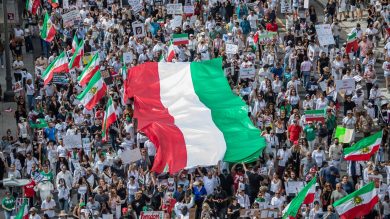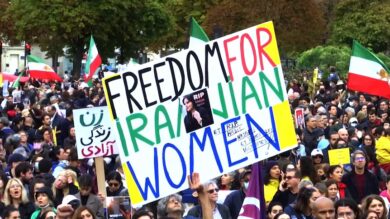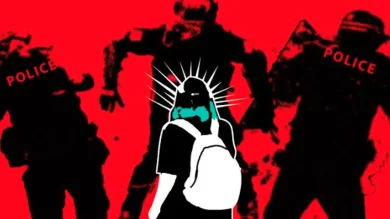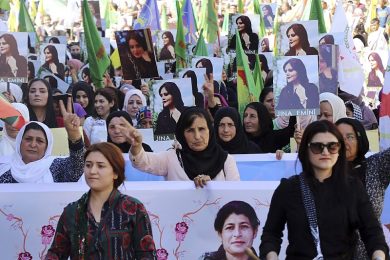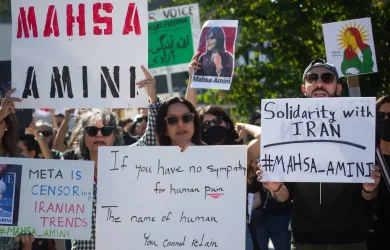The Islamic Revolutionary Guard Corps (IRGC) is the beating heart of the Islamic Republic’s machinery of repression. For over four decades, the IRGC has been directly responsible for some of the most egregious human rights violations committed by the Iranian regime. From the violent suppression of peaceful protests to extrajudicial killings, torture, sexual violence, and enforced disappearances, the IRGC operates with near-total impunity inside Iran—and far beyond its borders.
This article explores the legal, historical, and moral case for holding the IRGC accountable for its human rights abuses. It also outlines the obstacles that remain, the international tools available, and the actions individuals, governments, and organizations can take to ensure that justice, though delayed, is not denied.
1. The IRGC: Enforcer of Repression
The IRGC’s mandate is to preserve the Islamic Revolution—not to defend the Iranian people. This ideological mission has turned it into a militarized police state within a state, answerable only to the Supreme Leader.
Core Institutions of Repression:
• Basij Force: Street-level enforcers targeting protesters, students, and women.
• IRGC Intelligence Organization: Responsible for torture, surveillance, and show trials.
• IRGC-run Prisons: Facilities such as Evin Prison’s Ward 2-A are infamous for torture and solitary confinement.
The IRGC acts as judge, jury, and executioner—often bypassing Iran’s legal system entirely to carry out arrests, interrogations, and punishments.
2. Crimes Against Protesters
From the 2009 Green Movement to the 2022 Woman, Life, Freedom uprising, the IRGC has led brutal crackdowns against peaceful demonstrations.
Notable Patterns:
• Use of live ammunition on unarmed protesters.
• Snipers targeting heads, eyes, and genitals.
• Mass arbitrary detentions, often without trial.
• Torture and sexual violence in detention centers.
During the November 2019 protests alone, IRGC forces killed over 1,500 people in less than two weeks—often with complete information blackouts.
3. Torture, Sexual Violence, and Coerced Confessions
Survivors of IRGC custody have consistently reported:
• Beatings with cables and batons
• Electrocution
• Rape and threats of sexual assault
• Mock executions
• Sleep deprivation and solitary confinement
Many are forced to “confess” on national television—later used as propaganda to justify their arrests or executions.
Victims include:
• Narges Mohammadi – Human rights defender and Nobel Peace Prize laureate
• Sepideh Gholian – Labor rights activist tortured for exposing prison abuse
• Majidreza Rahnavard – Publicly executed after a coerced confession aired on state TV
4. Systemic Violence Against Women and Minorities
The IRGC enforces policies that disproportionately target women and marginalized groups.
Women:
• Subjected to “morality” policing, harassment, and arrest for removing the hijab.
• Tortured in custody and often denied medical care.
• Face sexual violence, especially during political imprisonment.
Ethnic and Religious Minorities:
• Kurds and Baluchis are frequently executed after sham trials.
• Baha’is face home raids, asset seizures, and community surveillance.
• Sunni Muslims are barred from practicing their faith openly.
The IRGC uses collective punishment and cultural erasure as tools of state terror.
5. Enforced Disappearances and Extrajudicial Killings
Families of dissidents, especially in border regions or ethnic minority areas, have reported:
• Detainees vanishing without legal process
• Bodies returned weeks or months later with signs of torture
• Burials enforced under surveillance, often at night to avoid public mourning
The IRGC operates outside of any accountability structure—answering only to the Supreme Leader.
6. Transnational Repression and Assassinations
The IRGC has exported repression abroad by targeting exiled Iranians, journalists, and opposition figures in Europe, the U.S., and the Middle East.
Examples:
• Masoud Molavi: Iranian dissident assassinated in Turkey, 2019.
• Ruhollah Zam: Journalist kidnapped from Iraq and executed in Iran.
• Masih Alinejad: Target of kidnapping and assassination attempts in the U.S.
These actions demonstrate that the IRGC is a global violator of human rights—not confined to Iran.
7. Why There Has Been No Justice (Yet)
Despite extensive documentation, the IRGC has avoided accountability due to:
• Iran’s judicial immunity under authoritarian rule.
• Weak international legal enforcement for crimes committed within sovereign borders.
• Political reluctance to confront Iran amid nuclear negotiations and regional diplomacy.
• Limited use of universal jurisdiction by countries willing to prosecute foreign actors.
As a result, victims often have no domestic or international forum to pursue justice.
8. Tools for International Accountability
Despite these obstacles, several legal and diplomatic tools exist to hold the IRGC accountable:
A. Universal Jurisdiction
Allows states to prosecute grave crimes such as torture, war crimes, and crimes against humanity—regardless of where they occurred.
• Germany, Sweden, and Norway have used this mechanism to try Syrian and Iranian officials.
• Recommendation: Encourage more countries to expand and use universal jurisdiction.
B. International Criminal Court (ICC)
• Iran is not a member, but crimes committed in neighboring states (like Syria or Iraq) may be eligible.
• Civil society groups can submit evidence for war crimes investigations.
C. Magnitsky-style Sanctions
• Allows for targeted sanctions on human rights abusers.
• Several IRGC commanders are already sanctioned under these laws in the U.S., UK, and Canada.
• Further designations needed, especially for mid-level operatives involved in torture.
D. UN Special Rapporteurs
• Rapporteurs on Iran, torture, and summary executions collect evidence and report annually.
• They can support documentation and keep pressure on the international stage.
E. Victim-led Legal Campaigns
• Families of executed protesters are filing cases in Germany and France.
• Diaspora-led legal advocacy can help gather testimony, build archives, and demand action.
9. Role of Civil Society and the Diaspora
Activists and organizations outside Iran play a critical role in pursuing justice:
• Documenting abuse through interviews, leaked footage, and open-source intelligence.
• Launching legal cases in foreign courts.
• Pressuring governments to blacklist IRGC and apply sanctions.
• Protecting survivors and whistleblowers through shelter, legal aid, and media exposure.
Each act of documentation is a step toward accountability.
10. The Moral and Strategic Importance of Justice
Justice is not only about punishment—it’s about restoring dignity to victims, deterring future crimes, and undermining the legitimacy of abusive regimes.
What Accountability Achieves:
• Empowers survivors and families
• Sends a message that impunity will not last forever
• Weakens the IRGC’s control by exposing its crimes
• Builds public pressure for reform and democratic change
Justice doesn’t happen overnight—but it builds momentum.
11. What You Can Do
A. Support Victim Testimony
• Share and amplify survivor stories.
• Invite victims to speak at events or on media platforms.
B. Fund Legal Campaigns
• Donate to human rights organizations supporting legal action against IRGC officials.
C. Demand Government Action
• Urge your lawmakers to:
• Sanction more IRGC members
• Designate the IRGC as a terrorist entity
• Support universal jurisdiction and ICC referrals
D. Raise Awareness
• Host exhibitions, screenings, or discussions featuring testimonies and documentation.
• Use hashtags like #JusticeForIran #BanIRGC #IRGCCrimes
12. Justice Is Coming
Though delayed, accountability is not out of reach.
As more evidence is gathered, as more survivors speak out, and as more governments are pressured to act, the walls of impunity surrounding the IRGC will begin to crack.
The fight for justice is long. But it is not silent. And it is not alone.
Conclusion: From Impunity to Accountability
The IRGC is not untouchable. It is a human institution, run by individuals who have committed crimes under international law. With enough pressure, evidence, and solidarity, those individuals can—and must—be held accountable.
Join Our Newsletter!
Stay informed with the latest updates, news, and ways to take action in the fight for justice and global security. Sign up now to get updates delivered straight to your inbox!

